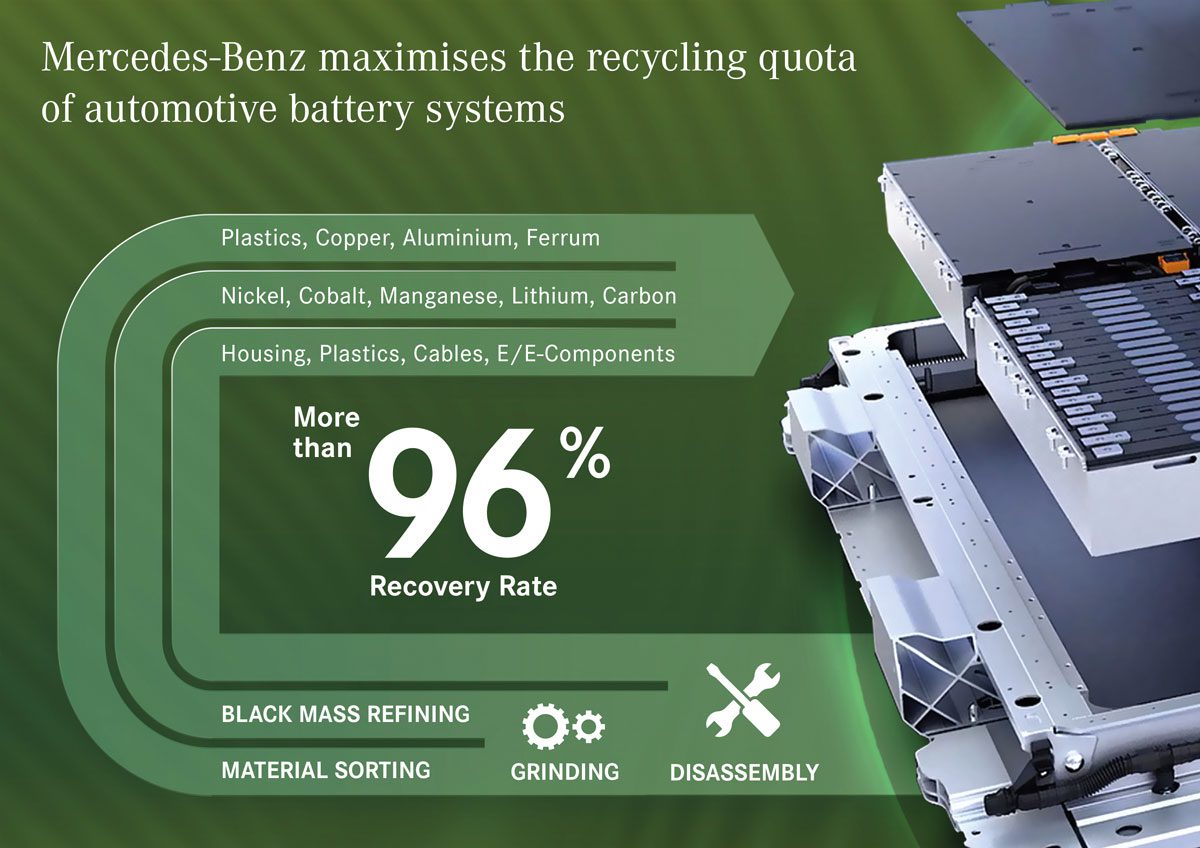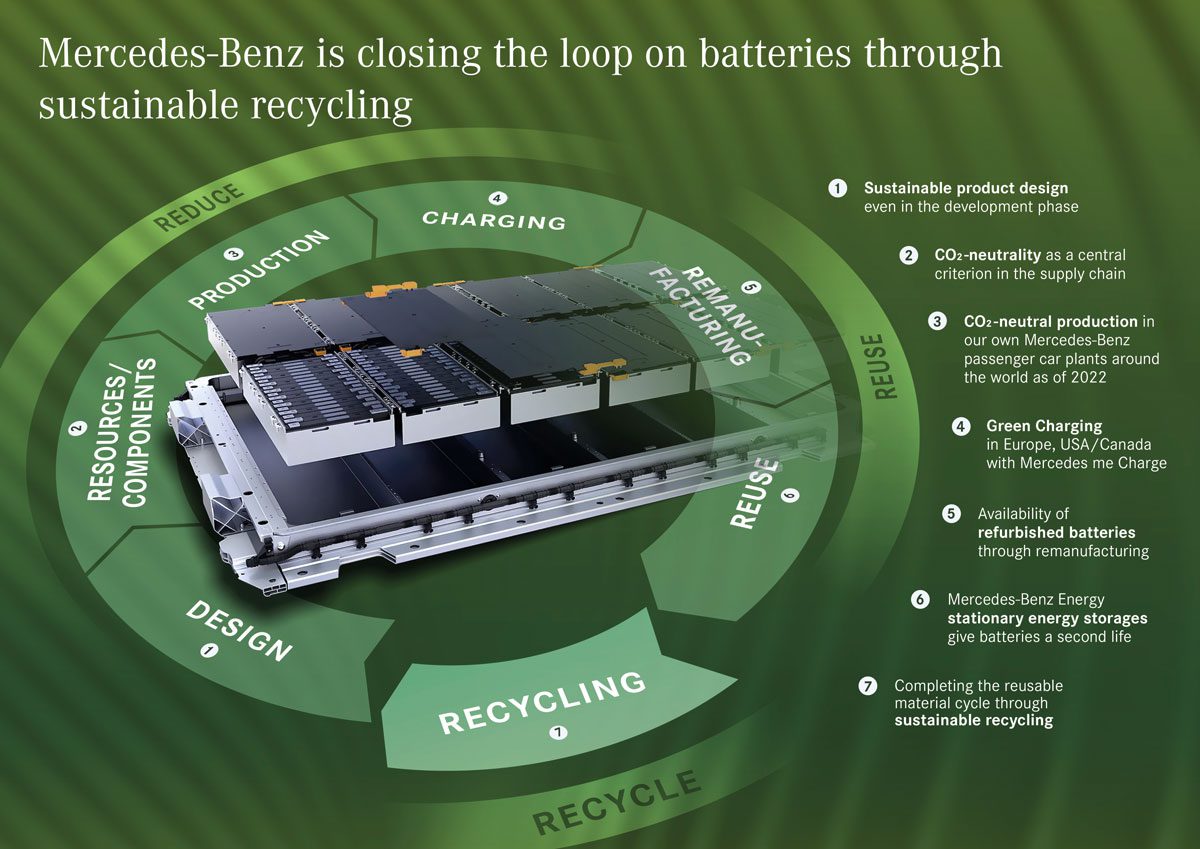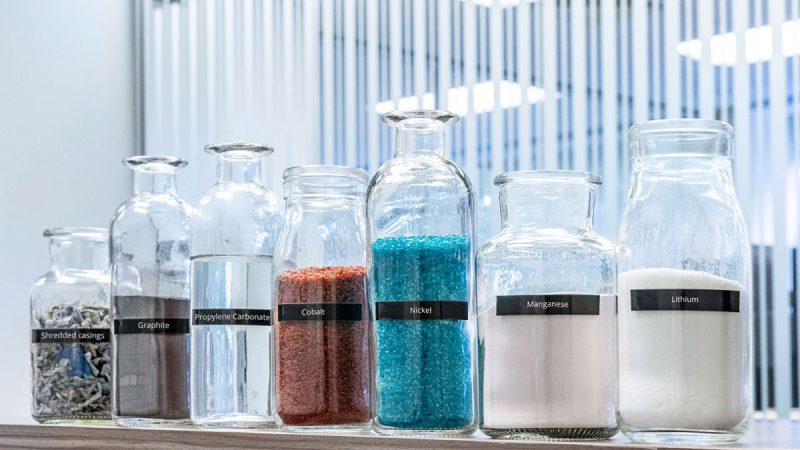German luxury automotive brand Mercedes-Benz has announced plans to build its own battery recycling plant that would allow a 96% recovery rate of materials in cooperation with Primobius, a joint venture between German mechanical engineering company SMS group and Australian project developer Neometals.
Founded in 2020 as a joint venture between ASX-listed minerals and advanced materials company Neometals and German plant manufacturer SMS group, Primobius is seeking to commercialise an efficient and environmentally friendly recycling solution for end-of-life and scrap lithium-ion battery cells.
Primobius will now enter into cooperation with Mercedes-Benz subsidiary Licular to build a pilot battery recycling plant in Germany with a goal of maximising the recycling rate, reducing resource consumption, while creating a more circular and sustainable raw materials supply chain.

Primobius will serve as the preferred technology partner for the conceptualisation and construction of Mercedes-Benz’ new battery recycling and waste disposal recycling plant, to be located at Mercedes Benz’s Kuppenheim Operations in Southern Germany.
Scientific support for the initial phase of the battery recycling project will be provided by the Karlsruhe Institute of Technology and the Technical Universities of Clausthal and Berlin.
Mercedes-Benz is hoping to set new standards of battery recycling based on an innovative mechanical and hydrometallurgy process which completely removes the need for energy-intensive and material-consuming pyrometallurgical process steps.
The patented hydrometallurgy process also boasts recovery rates of more than 96% and, upon completion, the direct integration of hydrometallurgy into the overall concept of a recycling plant will act as a first in Europe.
“Intelligent recycling significantly enhances the CO2 balance of lithium-ion batteries and shortens the time to reach the CO2 “break-even” of electric cars in the future,” said Horst Krenn, Managing Director of Primobius.
Construction of Mercedes-Benz’ new battery recycling plant will take place in two phases, starting with the construction of a plant for mechanical dismantling which will be completed by 2023.
The second phase of construction will build out the facilities for hydrometallurgical processing of the battery materials, though, considering that this second phase is subject to discussions with the public sector, it is uncertain when construction will commence or be completed.

If all goes according to plan, however, Mercedes-Benz hopes that its new Kuppenheim recycling plant will be able to cover all stages of recycling, from dismantling to module level, shredding and drying, and subsequent processing of battery-grade material, and will have an annual capacity of 2,500 tonnes, enough recovered materials required to be fed back into the recycling loop to produce more than 50,000 new battery modules.
“Mercedes-Benz is pursuing a clear goal with a view to conserving resources: a maximum circular economy for all raw materials used,” said Jörg Burzer, Mercedes-Benz board member for production and supply chain management.
“With our new recycling plant at the Kuppenheim location, we are increasing the recycling rate to more than 96 percent while expanding our own expertise in the area of battery value creation.”
Joshua S. Hill is a Melbourne-based journalist who has been writing about climate change, clean technology, and electric vehicles for over 15 years. He has been reporting on electric vehicles and clean technologies for Renew Economy and The Driven since 2012. His preferred mode of transport is his feet.

